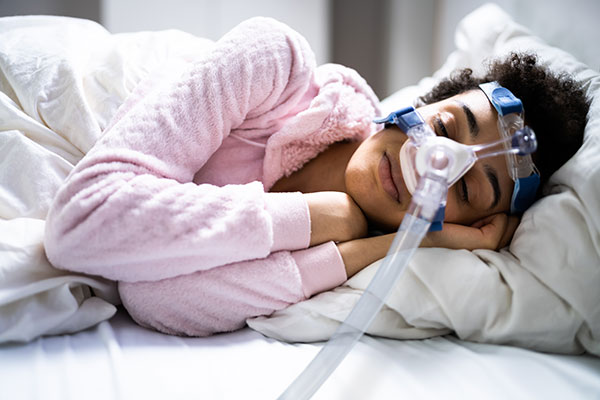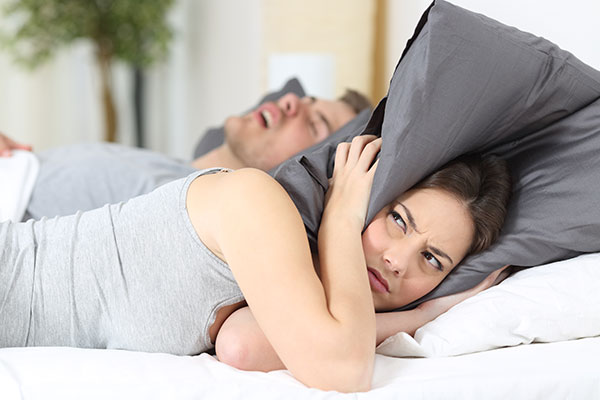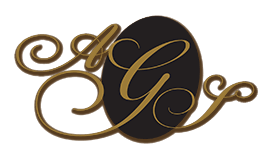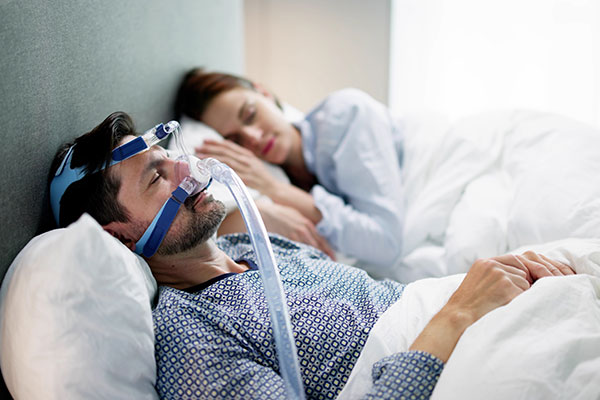Your Path to Restoring Sleep
Sleep apnea is a common sleep disorder that affects millions of people worldwide. If you or a loved one in Sacramento has been diagnosed with sleep apnea, it’s essential to explore effective treatment options to improve sleep quality and overall health.
At A. Scott Grivas III, DDS, INC., Dr. Scott Grivas offers CPAP (continuous positive airway pressure) to aid in easing your sleep apnea and restoring your quality of life. Contact our dental office today by calling (916) 929-9222 to schedule an appointment.

Types of Sleep Apnea
Sleep apnea is a disorder characterized by pauses in breathing or shallow breaths during sleep. There are several types of sleep apnea, with the two most common being obstructive sleep apnea (OSA) and central sleep apnea (CSA).
Obstructive Sleep Apnea (OSA)
OSA is the most common type of sleep apnea and occurs when the muscles at the back of your throat relax excessively during sleep, leading to a partial or complete blockage of the upper airway. These blockages result in episodes of interrupted breathing, often accompanied by loud snoring, gasping, or choking sounds.
Central Sleep Apnea (CSA)
CSA is less common and differs from OSA in its underlying cause. It occurs when the brain fails to send the proper signals to the muscles that control breathing. As a result, people with CSA may experience periods of apnea without any obvious airway obstruction.
What Is CPAP?
CPAP, or Continuous Positive Airway Pressure, is considered the gold standard treatment for obstructive sleep apnea (OSA). OSA occurs when the upper airway becomes partially or completely blocked during sleep, leading to interrupted breathing and reduced oxygen levels. CPAP therapy involves using a specially designed machine to deliver a continuous stream of pressurized air through a mask, keeping the airway open and allowing for uninterrupted breathing throughout the night.
Dr. Scott Grivas may recommend CPAP therapy for patients with sleep apnea because it reduces symptoms and improves sleep quality. By maintaining the airway pressure, CPAP helps prevent episodes of breathing cessation and oxygen desaturation, allowing individuals to achieve restful sleep and wake up feeling refreshed.
How Does CPAP Work?
CPAP therapy involves three primary components:
- CPAP machine: Compact and portable, it generates the pressurized air necessary to keep the airways open
- A mask: Available in various styles and sizes, it’s securely placed over the nose, mouth, or both. This creates a seal that delivers the pressurized oxygen directly to the airway.
- Tubing: The tubing connects the mask to the machine, allowing the air to flow continuously throughout the night.
When a person with sleep apnea wears a CPAP mask and turns on the machine, the pressurized air creates a pneumatic splint in the airway, preventing it from collapsing or becoming obstructed. This continuous flow of air acts as a “splint” to maintain an open airway, enabling uninterrupted breathing during sleep.
We emphasize the importance of a properly fitting mask to ensure optimal CPAP therapy. Depending on individual needs, there are different mask options available, including nasal masks, nasal pillows, and full-face masks. A comfortable and secure mask fit is crucial for effective treatment and maximum compliance.
Benefits of CPAP Therapy
CPAP therapy can provide patients with various benefits, including:
- Improved sleep quality: By ensuring a steady flow of oxygen and preventing apneas (breathing interruptions), CPAP users can enjoy more restful and uninterrupted sleep.
- Reduced daytime fatigue: Effective CPAP therapy can alleviate daytime fatigue and excessive daytime sleepiness, which are common symptoms of sleep apnea. With better sleep, individuals can feel more alert and focused during the day.
- Lower risk of health complications: Untreated sleep apnea can lead to serious health issues such as hypertension, heart disease, stroke, and diabetes. CPAP therapy helps reduce the risk of these complications by maintaining proper oxygen levels during sleep.
- Enhanced quality of life: By addressing sleep apnea symptoms and improving overall health, CPAP therapy can enhance an individual’s quality of life. Patients often report feeling more energetic, productive, and emotionally stable.
Types of CPAP Machines and Masks
CPAP Machines
The different types of CPAP machines include:
- Standard CPAP: Provides a fixed pressure level.
- Auto CPAP (APAP): Adjusts pressure based on the user’s needs during the night.
- BiPAP (Bi-level positive airway pressure): Offers different pressures for inhalation and exhalation, suitable for certain respiratory conditions.
CPAP Masks
CPAP masks come in various styles:
- Nasal masks: Covers the nose
- Full-face masks: Covers both the nose and mouth
- Nasal pillow masks: Rests under the nostrils
- Hybrid masks: Combines features of nasal and full-face masks
Choosing the right mask is crucial for comfort and treatment effectiveness, and it often depends on individual preferences and needs.
Our CPAP Tips
CPAP Proper Maintenance
To keep your CPAP machine in good condition, follow these instructions:
- Clean the CPAP components regularly to prevent bacterial growth.
- Replace mask cushions, filters, and tubing as recommended by the manufacturer.
- Keep the CPAP machine in a clean and dust-free environment.
Consistent Usage
To get the best results from CPAP therapy, you’ll want to do the following:
- Use the CPAP machine every time you sleep, including naps.
- Stay consistent with your prescribed pressure settings.
- Traveling with CPAP is manageable and portable machines are available. Don’t leave the CPAP behind.
Adjusting to CPAP
Some patients may experience initial discomfort when getting started with using a CPAP machine. We recommend gradually increasing usage time to adapt. Make sure to discuss any issues or discomfort with your healthcare provider for adjustments.
How Do You Know If You Need a CPAP Machine?
You may need a CPAP machine if you have sleep apnea or another type of sleep disorder. Common signs of sleep apnea include:
- Loud Snoring
- Witnessed Apneas
- Excessive Daytime Sleepiness
- Morning Headaches
- Frequent Nighttime Awakening
- Difficulty Concentrating
- Mood Changes
- High Blood Pressure
- Obesity or Excess Weight
- Large Neck Circumference
- Family History
If you recognize several of these signs and symptoms in yourself or if someone you trust has observed these patterns during your sleep, contact a healthcare professional. Remember that self-diagnosis isn’t advisable.
Once you have a proper diagnosis, our Sacramento dentist will discuss treatment, which may include CPAP machines.
CPAP Alternatives
Many may find that CPAP isn’t the best option. Luckily, there many CPAP alternatives available that our Sacramento dentist may recommend:
- Oral Appliance Therapy
- BiPAP Machine
- Surgery
- Lifestyle Changes
- Mouth and Throat Exercises
- Positional Therapy

Frequently Asked Questions
Can CPAP therapy cure sleep apnea?
No, CPAP therapy doesn’t cure sleep apnea, but it effectively manages the condition. Consistently using CPAP treatment as prescribed can lead to a significant reduction in symptoms and improved sleep quality for individuals with sleep apnea.
Is CPAP therapy uncomfortable?
Initially, some individuals may find CPAP therapy uncomfortable, especially when adjusting to the airflow and wearing the mask. However, with time and proper mask fitting, most people adapt well to the therapy and find it increasingly comfortable.
Can I travel with my CPAP machine?
Yes, most CPAP machines are designed to be portable and travel-friendly. Ensure you pack your CPAP machine and accessories securely, and consider bringing extra supplies for uninterrupted therapy while traveling.
How can I maintain and clean my CPAP equipment?
Regular cleaning of CPAP equipment is crucial to prevent bacteria buildup. Follow the manufacturer’s instructions for cleaning the mask, tubing, and humidifier. Cleaning with mild, fragrance-free soap and water is recommended. Maintain proper cleaning practices and replace components as needed to ensure optimal therapy effectiveness and hygiene.
Sleep Soundly and Breathe Freely
If you or a loved one is struggling with sleep apnea, don’t wait any longer to seek help. Take control of your sleep and overall well-being by exploring the benefits of CPAP therapy.
Contact our dedicated team at (916) 929-9222 to schedule a consultation and start your journey towards better sleep and healthier life. Don’t let sleep apnea hold you back any longer – make that call today!

